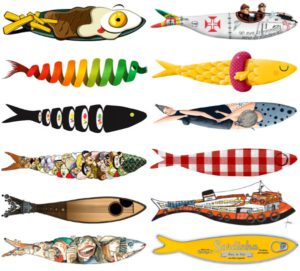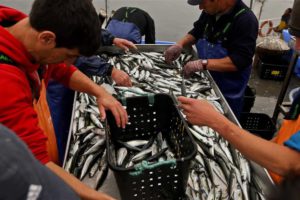Portuguese fishing communities swallowed by giant Dutch family company

The North Atlantic waters are valuable for their cod, redfish, and halibut species. With fish prices increasing, the fish right is big business. National governments and the EU no longer control fishing rights but a few giant fish companies do, like the Dutch Parlevliet & Van Der Plas, one of Europe’s most powerful fishing conglomerates with at least 50 vessels sailing under 10 flags.

In 2015, the family company expanded its business in Portugal by acquiring fishing rights in lucrative international waters between Greenland and Canada, according to Follow the Money, an international platform for investigative journalism.
The rampant expansion of Parlevliet & Van Der Plas is possible thanks to the EU’s fisheries policy that allows for quotas to be transferred between companies and ships, whereby the access is privatized and goes to the highest bidder.

The Portuguese deal in 2015, however, was a special one. By buying three rusty cod trawlers from the Portuguese company Verdemar – that collected fishing boats from family-owned businesses in Aveiro, a coastal town some 250 km north of Lisbon – the company got wider access to the lucrative Norwegian and Atlantic international waters.

Their big ships engage in an intense hunt for overfished species in the North Atlantic, contributing to the decline of fish stock in the area. Dragging the nets near the ocean’s bottom not only needs more fossil fuel but also has broader environmental implications like bycatch and destruction of marine habitats. The enormous size of the company makes it nearly impossible for Portuguese fishermen to compete.

In most EU countries – including Portugal – fishing rights are linked to a ship, so once a company buys the vessel it obtains its fishing rights. Big companies like Parlevliet & Van Der Plas – whose revenue almost doubled from 800 million in 2016 to 1.5 billion euros in 2021 – are not so much interested in the vessel itself but more in the right to fish a particular species in a particular area. They need quota, and cod quota is precious.
Catching cod in large-scale fishing also has wide-reaching social consequences. In Portugal, bacalhau (cod) is the country’s national dish and each Portuguese citizen eats – on average – around 15 kg of cod per year, especially during the Christmas season. But owing to overfishing and rising ocean temperatures the fish has become increasingly scarce and expensive.

The cod industry in Portugal was already struggling at the end of the 1960s after cod stocks declined in Newfoundland and dictator Salazar’s protective fishing laws were changed. Even so, the country was able to negotiate cod quotas in the Northern Atlantic until 1986 when the country joined the EU and conceded control of fisheries to Brussels.
Today, only 4% of the cod is caught by Portuguese vessels. The rest is imported.
Boa semana Enjoy the week (pic Público/Sapo)

 ‘Dat zal niet alleen een hele generatie vissers werkeloos maken maar ook de Portugese cultuur en eetgewoonten ingrijpend veranderen.
‘Dat zal niet alleen een hele generatie vissers werkeloos maken maar ook de Portugese cultuur en eetgewoonten ingrijpend veranderen.  Verleden jaar werd door de Portugese vissersvloot – volgens gegevens van het Nationaal Bureau voor de Statistiek – bijna 200.000 ton vis uit zee gehaald, waarvan 14.000 ton sardines.
Verleden jaar werd door de Portugese vissersvloot – volgens gegevens van het Nationaal Bureau voor de Statistiek – bijna 200.000 ton vis uit zee gehaald, waarvan 14.000 ton sardines.